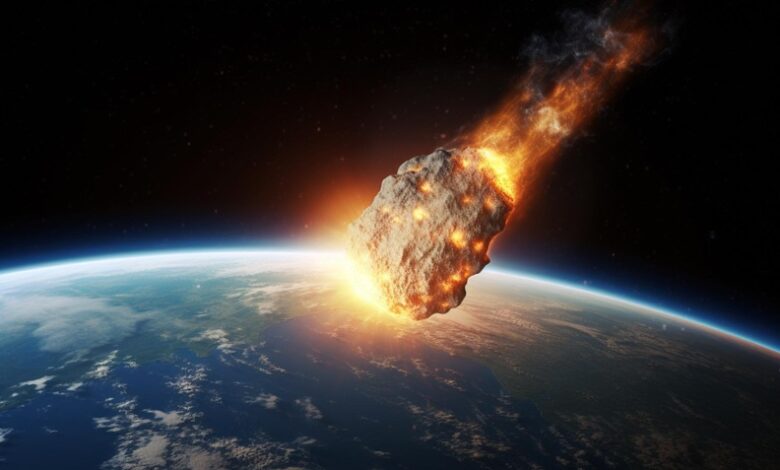A meteorite, four times larger than Mount Everest, struck Earth, and life started.
News Mania Desk \ Piyal Chatterjee \ 18th january 2025

Recent research published in the Proceedings of the National Academy of Sciences suggests that a significant meteorite impact that happened 3.26 billion years ago might have been vital for the initial development of life on Earth.
The research, conducted by Harvard University geologist Nadja Drabon, indicates that this devastating event served as a “massive fertilizer explosion” for early microorganisms. The meteorite, believed to be 50-200 times larger than the one responsible for the dinosaurs’ extinction, impacted Earth during the Paleoarchean Era. At that point, the Earth was mostly submerged in water, featuring little continental land and lacking oxygen in both the atmosphere and oceans.
Findings from ancient stones in South Africa’s Barberton Greenstone Belt indicate that, despite the early destruction, life quickly recovered and even flourished afterward. The effect possibly vaporized rock, generated a worldwide dust cloud, initiated colossal tsunamis, and led to the upper ocean layers boiling.
Nonetheless, the meteorite, identified as a carbonaceous chondrite, provided significant quantities of phosphorus – an essential nutrient for microbial organisms. Moreover, the tsunamis caused by the impact combined iron-rich deep waters with surface waters, establishing perfect conditions for various microorganisms.






